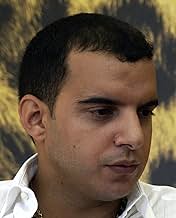I suppose one of the things about living in a developed country is having things nicely packaged.
If I eat meat, I don't want to be presented with vivid descriptions of slaughterhouses. News programmes can show pictures of fighting in Iraq, but detailed close-ups of severed limbs are inappropriate. But if I think food has caused unnecessary suffering or illegal cruelty I might want to know. If our boys abroad fighting for king and country have raped or pillaged, I expect them to be brought to justice. No gory details, you understand. Just do something about it.
Words package things. In some cases, we can always work it out if we want a bigger picture. Foie gras. Eliminate an enemy target. Regime change. Go to the bathroom. Spare me the details.
So what about phrases like extraordinary rendition? waterboarding? Well I can explain these, I think. Extraordinary rendition is when a terrorist suspect is transported to a foreign country. Waterboarding - there's been some human rights arguments over whether that's torture or not. You pour water on someone. They worry they're drowning. Doesn't sound very nice, but not like pouring acid on them or the really nasty stuff.
The truth is, we don't have the vocabulary for things we've never imagined. Not just the words. The emotional vocabulary is lacking.
Extraordinary Rendition follows Zaafir, a London-based academic. Suddenly he is snatched from the streets, locked in a shipping container, drugged and abused. He wakes up in a foreign country where he is tortured. Various details of his life come forward where erroneous assumptions could be made. As director Jim Threapleton says, "It's about the footprints we all leave in our lives. Whether it's your credit card statements, or destinations you travelled to in your year off, or an email you may or may not have opened. Under scrutiny, that can be misinterpreted or appropriated to an agenda." Eventually, Zaafir is released without charge.
The film uses flashbacks and flash-forwards to tell the three segments of his life. His normal life as a teacher with friends and family. His traumatised self when he returns (and his uncompreheding wife). Horrific experiences abroad.
That horrific segment is simply quite graphic. Waterboarding ceases to be a concept, hiding behind nicely packaged words. It's scary sh*t. Not that they stop at that. They do the more traditionally 'really nasty stuff' too.
Extraordinary Rendition comes from a minute budget and no little integrity. It is careful not to point accusatory fingers (the truth is always more complicated), but equally careful in its researching of hundreds of cases. It was made with the assistance of Amnesty International. At the Edinburgh UK Premiere, producer Andy Noble was careful not to overstate facts (but he was equally knowledgeable and demonstrated a firm grasp of the data on the many real cases from which the story was inspired).
The main drawback of Extraordinary Rendition is its narrative structure. As soon as we know the three different sections of Zaafir's life, not a lot is added by way of plot development. I also felt the story should stand on its own without the addition of background drumming and wailing for added effect (although the diegetic sounds of a person being tortured in an adjacent room were very effective.) As a work of fiction focussing on human rights, as a protest film, it is first rate. But as cinema entertainment it may well be swamped by similar themed films using larger budgets. Like the Hollywood version (called simply 'Rendition') due for mainstream distribution only months after the release of this film.





























